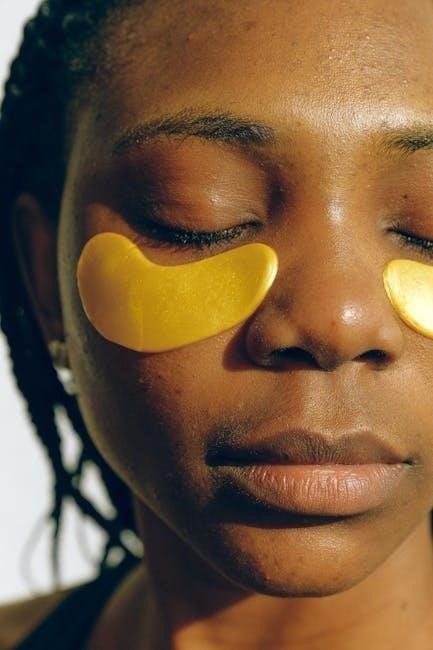Dorothea Orem’s Self Care Theory is a nursing theory that focuses on the patient’s ability to perform self-care activities, improving health outcomes and overall well-being through proper care․

Background of the Theory
Dorothea Orem’s Self Care Theory was developed in the 1950s and 1960s, a time when the nursing profession was evolving and seeking to define its role in the healthcare system․ The theory was influenced by Orem’s experiences as a nurse, educator, and researcher, as well as her observations of patients’ needs and abilities․ According to Orem, the theory was designed to provide a framework for nursing practice that would focus on the patient’s ability to perform self-care activities․ The theory is based on the idea that patients have the ability to care for themselves, but may require assistance from nurses to do so․ Orem’s work was groundbreaking at the time, and her theory has had a lasting impact on the nursing profession․ The theory has been widely used in nursing practice, education, and research, and continues to be a major influence on nursing theory and practice today․
Key Concepts of the Theory
The key concepts of Dorothea Orem’s Self Care Theory include self-care, self-care deficit, and nursing systems․ These concepts are interrelated and form the foundation of the theory․ Self-care refers to the activities that individuals perform to maintain their own health and well-being․ Self-care deficit occurs when an individual is unable to perform these activities, and nursing systems are the methods used by nurses to help individuals meet their self-care needs․ The theory also identifies three types of self-care requisites: universal, developmental, and health deviation․ Universal self-care requisites are those that are common to all individuals, while developmental and health deviation requisites are specific to individual needs and circumstances․ The theory provides a framework for nurses to assess and address the self-care needs of their patients, and to develop individualized care plans to promote health and well-being․ The concepts of the theory are essential to understanding the role of nursing in promoting self-care and health outcomes․

Understanding Self-Care Deficit Theory
Self-Care Deficit Theory focuses on patient’s inability to perform self-care activities, requiring nursing intervention․
Definition of Self-Care Deficit
The definition of Self-Care Deficit is a state in which an individual is unable to perform self-care activities, requiring nursing intervention to meet their health needs․ This concept is central to Dorothea Orem’s Self-Care Theory, which emphasizes the importance of self-care in maintaining health and well-being․ According to Orem, self-care deficit occurs when an individual’s self-care abilities are impaired, making them unable to perform activities such as bathing, dressing, and feeding themselves․ This deficit can be due to various factors, including illness, injury, or disability․ The definition of self-care deficit is crucial in nursing practice, as it helps nurses to identify individuals who require assistance with self-care activities and provide targeted interventions to address their needs․ By understanding the concept of self-care deficit, nurses can develop effective care plans that promote health and well-being in their patients․ The definition is also essential in healthcare settings, where it guides the development of policies and procedures for caring for individuals with self-care deficits․ Overall, the definition of self-care deficit is a fundamental concept in Orem’s Self-Care Theory, and its understanding is essential for providing high-quality nursing care․
Application of Self-Care Deficit Theory
The application of Self-Care Deficit Theory is widespread in nursing practice, with nurses using the theory to guide their care of patients with self-care deficits․ This theory is applied in various healthcare settings, including hospitals, clinics, and community health organizations․ Nurses use the theory to assess patients’ self-care abilities and identify deficits, developing care plans that address these deficits․ The theory is also used to educate patients and their families about self-care activities, promoting health and well-being․ Additionally, the theory is applied in nursing research, with studies examining the effectiveness of self-care interventions in improving patient outcomes․ By applying the Self-Care Deficit Theory, nurses can provide high-quality care that addresses the unique needs of their patients, promoting health and well-being․ The theory’s application is essential in nursing practice, as it enables nurses to provide targeted and effective care to patients with self-care deficits, ultimately improving patient outcomes․

Components of Orem’s Self Care Theory
Orem’s theory consists of three main components that work together to promote self-care and overall health and well-being naturally․
Theory of Self-Care
The theory of self-care is a fundamental concept in Dorothea Orem’s Self Care Theory, which emphasizes the importance of individuals taking care of themselves to maintain their health and well-being․ This theory is based on the idea that people have the ability to perform self-care activities, such as eating, bathing, and exercising, to meet their basic needs and promote their overall health․ The theory of self-care is composed of several key elements, including self-care agency, self-care actions, and self-care requisites․ Self-care agency refers to the individual’s ability to perform self-care activities, while self-care actions are the specific activities that individuals perform to take care of themselves․ Self-care requisites, on the other hand, refer to the basic needs that individuals must meet to maintain their health and well-being, such as food, water, and shelter․ By understanding these elements, nurses can provide effective care and support to their patients․
Nursing Systems
Nursing systems are a crucial component of Dorothea Orem’s Self Care Theory, which provides a framework for nurses to deliver care to their patients․ According to Orem, nursing systems are the methods and approaches that nurses use to help patients meet their self-care needs․ There are three types of nursing systems, including wholly compensatory, partially compensatory, and supportive-educative․ Wholly compensatory nursing systems involve the nurse performing all of the self-care activities for the patient, while partially compensatory systems involve the nurse and patient sharing self-care responsibilities․ Supportive-educative nursing systems focus on teaching patients how to perform self-care activities and providing support as needed․ By using these nursing systems, nurses can provide individualized care that meets the unique needs of each patient, promoting optimal health outcomes and enhancing patient autonomy․ Nursing systems are essential for effective nursing practice and are a key aspect of Orem’s Self Care Theory․

Significance of Orem’s Self Care Theory
Orem’s theory enhances nursing practice and patient care with its unique approach․
Impact on Nursing Practice
Orem’s Self Care Theory has a significant impact on nursing practice, as it provides a framework for nurses to assess and address the self-care needs of patients․ The theory emphasizes the importance of patient education and empowerment, allowing patients to take an active role in their own care․ This approach has been shown to improve patient outcomes and reduce the risk of complications․ By using Orem’s theory, nurses can develop individualized care plans that meet the unique needs of each patient, promoting autonomy and self-care․ The theory also highlights the importance of nursing systems, which can be used to support and facilitate patient self-care․ Overall, Orem’s Self Care Theory has had a profound impact on nursing practice, and continues to be a widely used and respected framework for nursing care․ The theory’s focus on patient-centered care has improved the quality of care provided to patients․
Future Directions in Nursing
The application of Orem’s Self Care Theory will continue to evolve in the future, with a focus on integrating technology and innovative approaches to support patient self-care․ The use of digital health tools and mobile apps will become more prevalent, enabling patients to take a more active role in their care․ Additionally, there will be a greater emphasis on interprofessional collaboration, with nurses working alongside other healthcare professionals to develop comprehensive care plans․ The theory will also be applied in new and diverse settings, such as community health and public health nursing․ Furthermore, researchers will continue to study and refine the theory, exploring its application in various populations and contexts․ This will lead to a deeper understanding of the theory and its potential to improve patient outcomes and advance the field of nursing․ New research studies will be conducted to test the theory’s validity․
